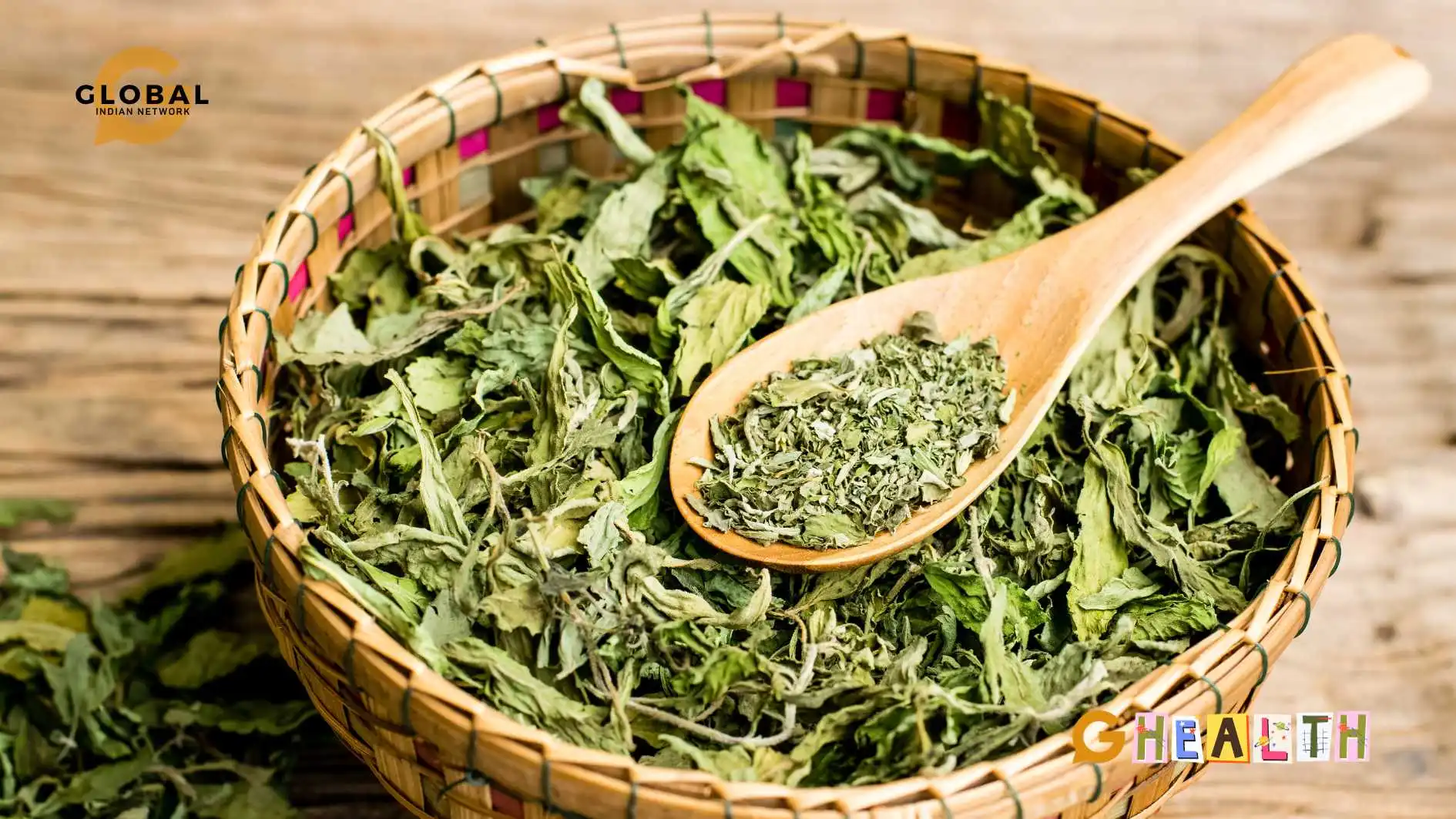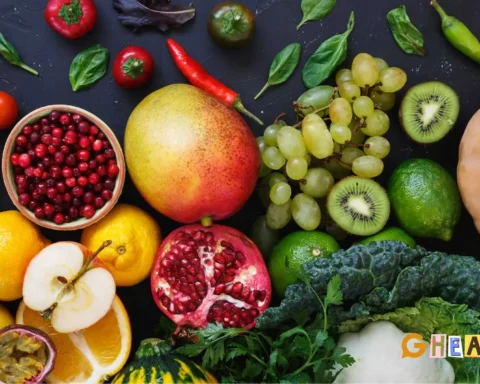In a world where wellness and indulgence often clash, the quest for a healthier, naturally sweet alternative has never been more enticing. Today, we embark on a journey to explore the wonders of Stevia, a natural sweetener that promises the sweetness your taste buds crave while keeping your health in check. So, let's unravel the sweet secrets of Stevia and determine if it's the ultimate solution for your sweet tooth cravings.
Table of Contents
History
Stevia, known as "sweetleaf" or "sugarleaf," is native to South America, where indigenous communities have used its leaves to sweeten beverages and foods for centuries. Its journey to global recognition began in the early 20th century when Western explorers stumbled upon its sweet secrets.
Stevia was discovered by the Guaraní people of South America centuries ago. They used the leaves of the Stevia rebaudiana plant to sweeten their food and beverages. The Guaraní people also used stevia medicinally to treat a variety of conditions, including stomach problems, high blood pressure, and diabetes.
In the early 1900s, a Swiss botanist named Moisés Santiago Bertoni discovered stevia while exploring the Paraguayan rainforest. Bertoni was impressed by the sweetness of stevia leaves, and he began to study the plant and its properties. He published the first scientific paper on stevia in 1905.
In the 1960s, Japanese scientists began to study stevia for its potential health benefits. They found that stevia could help to lower blood sugar levels and improve blood pressure. Japanese scientists also developed a way to isolate steviol glycosides from the aqueous extract of stevia leaves, which is the sweet compound in stevia.
Stevia was first approved for use as a food additive in Japan in 1971. It was later approved for use in other countries, including the United States, where it was approved by the Food and Drug Administration (FDA) in 2008.
Understanding Stevia
Stevia is a natural sweetener that has gained popularity recently as a healthy alternative to sugar and artificial sweeteners.
Extraction
Stevia sweeteners are typically derived from the leaves of the Stevia rebaudiana plant. The sweet compounds in the Stevia plant, known as steviol glycosides, are extracted through a process that involves crushing the leaves, steeping them in water, and purifying the resulting crude extract. The purified steviol glycosides are then dried and may be further processed into various forms, including powdered or liquid extracts.
Chemical Form
Stevia's sweetness is primarily attributed to its steviol glycosides. The two most common and intensely sweet steviol glycosides found in Stevia are Stevioside and Rebaudioside A (Reb A). These glycosides are composed of glucose molecules bonded to the steviol molecule. They are non-caloric compounds, as the body does not metabolize them.
Metabolism in the Body
Steviol glycosides, after ingestion, are not significantly absorbed in the upper gastrointestinal tract. Instead, they pass through the digestive system and are metabolized by bacteria in the colon. The resulting steviol glucuronide and other metabolites are excreted in the urine. This means that Stevia does not contribute to calorie intake, and its impact on blood sugar and insulin levels is minimal, making it a suitable option for those concerned about these factors.
Sweetness Compared to Table Sugar
Stevia's sweetness is remarkable, with active compounds steviol glycosides being approximately 50 to 300 times sweeter than sucrose, which is table sugar. The actual sweetness can vary depending on the specific steviol glycoside used. For instance, Reb A is one of the sweetest compounds, while others, like Stevioside, may be less sweet. To achieve a similar level of sweetness of sugar, only a minimal amount of Stevia is required, making it a highly efficient sugar substitute.
The sweetness of Stevia, combined with its zero-calorie nature and minimal impact on the human body, has contributed to its popularity as a natural sweetener in a wide range of food and beverage products.
Approvals
Stevia, as a sugar substitute, is generally considered safe for consumption when used within established guidelines. Several regulatory agencies, including the U.S. Food and Drug Administration (FDA), the European Food Safety Authority (EFSA), Health Canada, the Joint Expert Committee on Food Additives (JECFA) of the World Health Organization (WHO), and the Food and Agriculture Organization (FAO), have reviewed the safety of Stevia and its sweetening compounds, known as steviol glycosides. Here is some evidence of Stevia's safety:
- FDA Approval: In 2008, the FDA granted Generally Recognized as Safe (GRAS) status to certain high-purity steviol glycosides, including Rebaudioside A (Reb A). This designation indicates that the FDA considers these compounds safe for their intended use as sweeteners.
- EFSA Evaluation: The EFSA conducted a comprehensive review of the safety of steviol glycosides in 2010 and established an Acceptable Daily Intake (ADI) for Steviol Glycosides. The ADI is the amount of a substance that can be consumed daily over a lifetime without appreciable health risks. EFSA concluded that steviol glycosides are safe for the proposed uses in food and beverages.
- JECFA Assessment: JECFA, a joint committee of WHO and FAO, also evaluated the safety of steviol glycosides and established an ADI. They concluded that Steviol Glycosides were not of safety concern at the levels typically consumed.
It's important to note that while Stevia and its sweetening compounds are generally regarded as safe when used within established guidelines, some individuals may experience mild side effects or have sensitivities, such as a slight aftertaste or digestive discomfort. These effects are typically minimal and vary from person to person.
As with any food or food additive, it's essential to use Stevia in moderation and monitor your response to ensure it aligns with your specific dietary needs and preferences. The safety of Stevia has been supported by rigorous scientific evaluations, making it a viable and popular choice as a natural sugar substitute.
- Acceptable Daily Intake (ADI): The Acceptable Daily Intake is a measure established by regulatory authorities, such as the U.S. Food and Drug Administration (FDA) and the European Food Safety Authority (EFSA), to determine the amount of a substance that can be safely consumed daily over a person's lifetime without appreciable health risk. For Steviol glycosides, the sweet compounds in Stevia, the ADI has been established to ensure its safe consumption. The ADI for Steviol glycosides is expressed in milligrams per kilogram of body weight. Both the FDA and EFSA have set ADIs for Steviol glycosides, and these values are based on comprehensive safety assessments. The Acceptable Daily Intake (ADI) for steviol equivalents, the sweet compound in stevia, is 4 milligrams per kilogram of body weight per day.
- Generally Recognized as Safe (GRAS) Notification: In the United States, the GRAS designation is a regulatory status granted to food ingredients that are considered safe for their intended use in foods. The GRAS process involves submitting a notification to the FDA, which reviews safety data and documentation. Once the FDA reviews and accepts the data, it designates the substance as GRAS, indicating that it is safe for use. Some high-purity Steviol glycosides, specifically Rebaudioside A (Reb A) and Rebaudioside M, have received GRAS status, indicating their safety for use in food and beverages.
These designations, the ADI and GRAS status, are essential for assuring consumers that Steviol glycosides, the sweetening compounds in Stevia, have been subject to rigorous safety assessments and are considered safe for consumption when used within established guidelines. The ADI helps provide a clear threshold for safe daily intake, and the GRAS designation reflects the FDA's safety assessment based on available scientific evidence.
Commercial Uses
Stevia is primarily known for its use as a natural sweetener in food and beverage products, but it also has some other commercial uses and applications. Here are a few of them:
- Dietary Supplements: Stevia is used in dietary supplements, particularly those that support weight management, blood sugar control, and overall health. Stevia is often used in supplement form as a powder, liquid extract, or capsule.
- Personal Care Products: Stevia can be found in certain personal care products such as toothpaste and mouthwash. It is used for its natural sweetness and potential benefits for oral health, as it does not promote tooth decay.
- Flavoring Agent: Stevia is sometimes used as a flavouring agent in various food products, aside from its role as a sweetener. It can enhance the taste and aroma of certain foods and beverages.
- Animal Feed: Stevia has been explored as a potential additive in animal feed. Some research suggests that it may have benefits for animal digestion and health.
- Medicinal Uses: In some traditional and alternative medicine practices, Stevia has been used for its potential medicinal properties, including antimicrobial and antioxidant effects. However, it's important to note that using Stevia for medicinal purposes is not widely supported by scientific research.
- Agricultural and Horticultural Uses: Stevia plants can be a natural pesticide due to their antimicrobial properties, which can help protect other crops from certain pests and diseases.
- Insect Repellent: Some studies have explored using Steviol, a compound found in Stevia, as an insect repellent. It has shown potential as a natural alternative to synthetic repellents.
Coca-Cola and PepsiCo both use different types of Steviol glycosides in their products:
- Coca-Cola: Coca-Cola primarily uses Reb A (Rebaudioside A), one of the most common and intensely sweet steviol glycosides found in Stevia, in its Coca-Cola Life and other reduced-calorie or Stevia-sweetened beverages.
- PepsiCo: PepsiCo has also used Reb A (Rebaudioside A) in some of its products, including Pepsi True. Additionally, they have developed a proprietary blend called "Pepsi True Sweetener," which includes Steviol glycosides and sugar for a balance of sweetness and flavour.
It's important to note that these companies may use various Steviol glycosides or blends of sweeteners depending on the specific product and market. The choice of Steviol glycosides and sweeteners is influenced by factors such as taste preferences, regulatory approvals, and product formulations.
How Can Stevia Be Used?
Stevia is a versatile natural sweetener that can be used in various ways to replace sugar in your diet. Here are some common ways to use Stevia:
- Sweetening Beverages: Stevia can be used to sweeten a wide range of beverages, including coffee, tea, iced tea, lemonade, dairy products, and various soft drinks. It dissolves readily in liquids, allowing you to create your favourite sweet beverages without adding calories.
- Baking and Cooking: Stevia can be used in baking and cooking to replace sugar. When using Stevia in recipes, you typically need much less than the amount of sugar called for. This is because Stevia is significantly sweeter than sugar. It's essential to follow specific recipes or guidelines for baking with Stevia to achieve the right sweetness and texture.
- Desserts: Stevia is commonly used in dessert recipes to make cakes, cookies, puddings, and other sweet treats. It can be an excellent choice for those who enjoy their favourite desserts with reduced calorie content.
- Smoothies: Stevia is a popular choice for sweetening smoothies and shakes. It blends well with fruits, yoghurt, and other smoothie ingredients, adding sweetness without added sugars.
- Oatmeal and Cereal: If you enjoy sweetening your breakfast, Stevia can be used to sweeten oatmeal, cereal, and yoghurt. It allows you to create a sweet morning meal without the added calories of sugar.
- Salad Dressings and Sauces: Stevia can be incorporated into homemade salad dressings and sauces. It provides sweetness without compromising the balance of flavours in savoury dishes.
- Preserves and Jams: When making homemade fruit preserves or jams, Stevia can be used to sweeten the mixture. It's an excellent choice for those looking to reduce the sugar content in their homemade preserves.
- Snacks and Energy Bars: Stevia is commonly used in producing snacks, protein bars, and energy bars as a natural sweetener, providing sweetness without adding extra calories.
- Beverage Mixes: You can find Stevia in powdered form in various flavoured beverage mixes, including flavoured water enhancers and powdered drink mixes. These are convenient for sweetening water and other beverages on the go.
- Cocktails: For those who enjoy cocktails, Stevia can be used to sweeten drinks like mojitos, margaritas, and other mixed beverages without adding the calories associated with traditional syrups or sugar.
It's important to note that while Stevia is a valuable sugar substitute, it is significantly sweeter than sugar, so it should be used in moderation to avoid an overly sweet taste. The specific form of Stevia (liquid, powdered, granulated, etc.) and brand you choose may also affect its sweetness, so it's a good idea to follow recommended usage guidelines or recipes when incorporating Stevia into your favourite dishes and beverages.
Healthy Choice for Sweet Tooth Cravings
Stevia, as a natural sugar substitute, is a non-nutritive sweetener that offers several potential health benefits, making it an attractive choice for those looking to reduce their sugar intake and maintain a healthier lifestyle. Some of the notable health benefits of Stevia include:
- Weight Management: Stevia is virtually calorie-free, making it an excellent option for those aiming to reduce their calorie intake. By replacing sugar with Stevia, individuals can enjoy sweetness without adding extra calories to their diet, aiding in weight loss.
- Blood Sugar Regulation: Stevia may have a positive impact on blood sugar levels and insulin secretion. Some research suggests that Stevia can help reduce post-meal blood glucose spikes, making it a suitable choice for diabetic patients or those seeking to manage their blood glucose levels.
- Oral Health: Unlike sugar, Stevia does not promote tooth decay or cavities. Some studies indicate that Stevia may possess antibacterial properties, which can contribute to maintaining better oral health.
- Blood Pressure: Some animal studies suggest that certain compounds in Stevia may have a mild blood pressure-lowering effect. While more research is needed in this area, it hints at a potential additional health benefit.
- Antioxidant Properties: Stevia contains natural antioxidants, which can help combat oxidative stress and protect cells from damage caused by free radicals.
- Reduced Sugar Consumption: By substituting sugar with Stevia, individuals can reduce their overall sugar intake. Excessive sugar consumption has been linked to obesity, heart disease, and various other health issues. Using Stevia can help mitigate these risks of carbohydrate intake.
- Caloric Reduction: Stevia's zero-calorie nature makes it valuable for individuals who want to reduce their energy intake while still enjoying sweet-tasting foods and beverages.
It's important to note that while Stevia offers these potential health benefits, individual responses may vary. Some people may have sensitivities or experience mild side effects, such as a slight aftertaste or digestive discomfort. Therefore, it's advisable to use Stevia in moderation and be mindful of your body's response. Additionally, the overall impact on human health depends on various factors, including one's overall dietary habits and lifestyle.
Stevia Vs Other Sweeteners
Stevia offers several advantages and distinctions compared to other common sweeteners, including tabletop sweeteners, artificial sweeteners, and other natural alternatives like honey and maple syrup. Here's a comparison of Stevia with other sweeteners:
1. Stevia vs. Sugar:
- Calorie Content: Stevia is virtually calorie-free, whereas sugar is calorically dense, providing around 16 calories per teaspoon.
- Impact on Blood Sugar: Stevia has a minimal impact on blood sugar levels, making it a suitable option for individuals with diabetes. Sugar, on the other hand, can cause significant spikes in blood sugar.
- Weight Management: Stevia can assist in weight management due to its low-calorie content, while excessive sugar consumption is linked to weight gain.
- Dental Health: Stevia does not promote tooth decay, whereas sugar can contribute to cavities and dental issues.
2. Stevia vs. Artificial Sweeteners (e.g., Aspartame, Sucralose):
- Natural vs. Artificial: Stevia is a natural sweetener, while artificial sweeteners are synthetic chemicals. Some individuals prefer natural options.
- Safety Concerns: Stevia is generally considered safe when used within recommended guidelines. Some artificial sweeteners have raised safety concerns, such as aspartame.
- Caloric Value: Stevia is calorie-free, whereas most artificial sweeteners are low in calories but not calorie-free.
3. Stevia vs. Honey:
- Calorie Content: Honey is calorie-dense, providing around 64 calories per tablespoon, whereas Stevia is virtually calorie-free.
- Impact on Blood Sugar: Honey can cause a more significant increase in blood sugar levels due to its natural sugar content. Stevia has minimal impact.
- Nutrient Content: Honey contains small amounts of vitamins, minerals, and antioxidants. Stevia is not a significant source of nutrients.
4. Stevia vs. Maple Syrup:
- Calorie Content: Maple syrup is calorie-dense, offering about 52 calories per tablespoon, while Stevia is virtually calorie-free.
- Impact on Blood Sugar: Maple syrup has a substantial impact on blood sugar levels due to its sugar content. Stevia has minimal impact.
- Flavour Profile: Maple syrup has a distinctive and rich flavour, which may not be suitable for all recipes. Stevia is more neutral in taste.
Stevia stands out for its zero-calorie nature, minimal impact on blood sugar, and natural origin. It is a suitable option for those seeking to reduce their calorie and sugar intake, manage their blood sugar control, and maintain a healthier lifestyle. However, individual taste preferences and dietary needs may influence the choice of sweetener, and using Stevia in moderation is recommended for balanced sweetness.
Controversies Around Stevia
While Stevia is generally regarded as safe for consumption and has gained popularity as a natural sugar substitute, there have been some controversies and concerns associated with its use. Here are some of the main controversies around Stevia:
- Regulatory Approvals: Stevia's regulatory status has been a subject of controversy. In some countries, Stevia and its sweetening compounds, steviol glycosides, were initially banned or restricted due to concerns about their safety. Over time, many countries have approved Steviol glycosides as a food additive, but there have been disputes about acceptable levels of purity and appropriate usage guidelines.
- Purity and Quality: The quality and purity of Stevia-based products can vary significantly between brands and manufacturers. Some low-quality Stevia extracts may have an unpleasant aftertaste or contain impurities. Consumers must choose high-quality Stevia products from reputable sources to ensure a positive experience.
- Taste and Aftertaste: Some individuals have reported that they find Stevia to have a noticeable aftertaste, which can be perceived as bitter or metallic. The perception of the aftertaste can vary from person to person. Different forms of Stevia, such as crude stevia extracts or specific brands, may have different taste profiles.
- Digestive Sensitivities: Stevia may cause digestive discomfort in some individuals, leading to symptoms like bloating, gas, or diarrhoea. These sensitivities can vary, and not everyone experiences these health concerns.
- Steviol Glycoside Concentration: The effects of Rebaudioside A in Stevia products can vary. Rebaudioside A (Reb A) is one of the sweetest steviol glycosides and is often the most desired for its sweetening properties. However, some lower-quality Rebaudiana extracts may contain less Reb A and more of the less sweet compounds, affecting the overall sweetness and taste.
- Psychological Concerns: There have been debates about the psychological effects of using non-caloric sweeteners like Stevia. Some studies have suggested that intense sweeteners may alter taste perceptions, leading to a positive association and potentially contributing to overeating. However, the evidence on this issue is not conclusive.
It's important to note that despite these controversies, Stevia has been extensively researched, and regulatory bodies in many countries, including the U.S. FDA and EFSA, have reviewed its safety and approved its use as a food additive. Stevia is generally considered safe when used within recommended guidelines, and high-quality products are available for those who prefer stevia-based sweeteners. As with any dietary choice, individual responses may vary, and it's advisable to use Stevia in moderation and be mindful of its taste and effects on your body weight.
Conclusion
In the quest for a healthier and sweeter life, we've explored the world of Stevia and its potential as a natural sugar substitute. So, is Stevia the healthy choice for your sweet tooth cravings? The answer lies in the remarkable benefits it brings to the table. With its zero-calorie delight, potential for blood sugar management, and tooth-friendly nature, Stevia emerges as a compelling choice for those seeking to balance their love for sweetness with their commitment to well-being. While it's not entirely devoid of controversies or individual sensitivities, Stevia offers a flavorful and health-conscious path to satisfying your sweet cravings. So, embrace the sweetness of Stevia in moderation, and let it be your ally on the journey to a healthier, happier you.
FAQs
Why is stevia banned in Europe?
Stevia was banned in Europe due to safety concerns, but it was lifted in 2011 after new evidence showed it is safe for human consumption.
Is stevia okay to consume every day?
Stevia is generally safe to consume daily in moderation, with an ADI of 4 milligrams per kilogram of body weight per day.
Is stevia good for kids?
Stevia is generally considered safe for children when used in moderation. It can be a useful sugar substitute to reduce sugar intake in kids' diets, but, as with any sweetener, it's essential to monitor their consumption.
Is stevia safe for kidneys?
Stevia is not associated with adverse effects on kidney function when consumed within recommended limits. It can be a suitable choice for individuals with kidney concerns.










